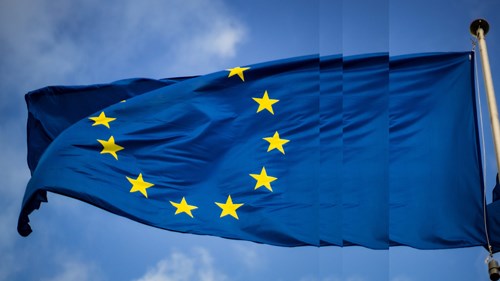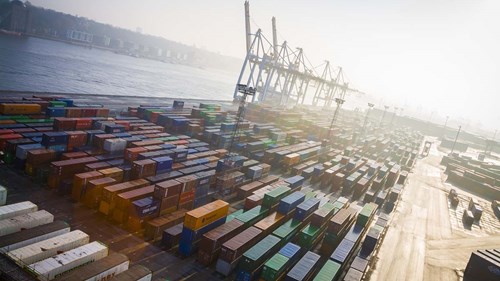New EU Legislation: Violations of Sanctions as EU Crimes
Context
On 2 December 2022, the Commission approved a Proposal for a Directive of the European Parliament and of the Council on the definition of criminal offences and penalties for the violation of Union restrictive measures (“Proposal”). Preceding the Proposal, the Council adopted a Decision to identify the violation of Union restrictive measures as an EU crime. The Proposal ensued amongst the backdrop of the anticipated strengthening of EU rules on confiscation and asset recovery, aiming to facilitate confiscation of frozen assets to be used in the reconstruction of Ukraine.
Legal Basis
Under Art. 83 of the Treaty on the Functioning of the EU (“TFEU”), the Parliament and Council may establish minimum rules concerning the definition of criminal offences and sanctions in areas of particularly serious crime with a cross-border dimension. Art. 83 TFEU lists categories covered thus far, such as terrorism, arms trafficking, and corruption. The Proposal reiterates the fact that sanctions violations constitute serious crimes, as they can, amongst others, perpetuate threats to international peace and security and undermine democracy.
The implementation and enforcement of EU sanctions fall under the responsibility of Member States. The Commission underlines the importance of the Directive due to the resulting fragmentation of definitions of sanctions violations and applicable penalties. This led to different degrees of criminalisation amongst Member States (in two Member States only administrative measures are foreseen).
Key Aspects of the Proposal
The Proposal aims to uniformly criminalise defined sanctions violations (Art. 3 para. 1 od the Proposal). Some Member States have broad definitions of sanctions violations in place, such as “breach of EU regulations”, whereas others list the prohibited conduct in detail. To counter these different approaches, Art. 3 para. 2 of the Proposal firstly foresees a uniform definition of sanctions violation. Included are categories such as trading goods or services whose import or export is prohibited, failing to freeze or making funds or economic resources available to a designated entity, providing prohibited or restricted services etc.
The foreseen offences require intent (Art. 3 para. 1 of the Proposal) or at least gross negligence (Art. 3 para. 3 of the Proposal). Wilful blindness (i.e., ignoring existence of restrictive measures), which was originally included in the initial Communication from the Commission has been omitted. The Proposal, moreover, does not define these terms. A more precise definition of intent would be desirable, as the thresholds for intent vary amongst Member States, depending on the conduct in question.
The Proposal does, on the flip side, address calls for a clearer definition of the circumvention prohibition (Art. 3 para. 2 (h) of the Proposal), for example, by determining the margin between illicit activity and legal advice. Circumvention of restrictive measures through certain activities shall also constitute a criminal offence, for example concealing funds or economic resources, concealing ultimate ownership, failing to comply with notification requirements or even failing to cooperate with administrative authorities. Although the Proposal stipulates that legal professionals are subject to the Directive, as there is a risk of their services being misused for the purpose of violating sanctions, there should be exemptions (Recital 7). Art. 3 para. 5 of the Proposal clarifies that professional legal secrecy shall prevail and that members of the legal profession do not have reporting obligations, except when the legal professional participates in the violation.
Similarly, a carve-out from criminalisation for humanitarian aid has been incorporated (Recital 9 and Art. 3 para. 6 of the Proposal). The Directive congruently aims to harmonise the interpretation and application of derogations, for which Member States are typically entitled to discretion.
Practical Considerations
Although stakeholders widely appear to welcome the Proposal, the Directive seems to only be the first step in the full harmonisation of sanctions enforcement. Under German law, Sec. 18(1) of the German Foreign Trade and Payments Act [Außenwirtschaftsgesetz] provides for criminal punishment for almost all kinds of sanction violations. Sec. 16 of the newly passed bill of the Sanctions Enforcement Act [Sanktionsdurchsetzungsgesetz] qualifies failure of a designated entity to report funds or economic resources as a criminal offence. Negligent violations are regarded as administrative offences. Nevertheless, further adoption of German criminal law will become necessary. Gross negligent violations can no longer be qualified as administrative offences but must be punished as a criminal offence. The most important change will affect legal persons and partnerships: The maximum punishment for intentional or gross negligent violations will be increased by up to 1 % or even 5% of the worldwide turnover, depending of the severity of the violation. This will make it more essential than ever to have an appropriate sanction compliance program in place.
Next steps
The draft Directive will, in a next step, be discussed in working groups in the European Parliament and Council as part of the ordinary co-legislative procedure. The Proposal has already been submitted to the Council on 5 December 2022.
As the presidency of the Council will rotate from the Czech to Swedish presidency on 1 January 2023, we expect the Council working group to commence its discussions after this date. First indications of Parliament and Council positions, which determine the further course of the Proposal, will typically be available within two months.











